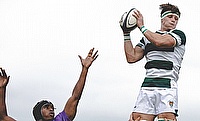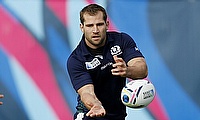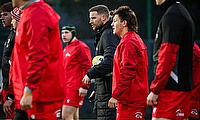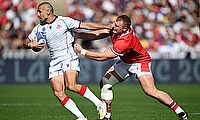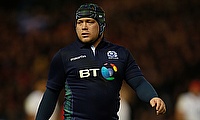Why a third-place finish in the Six Nations can be just the start for Scotland
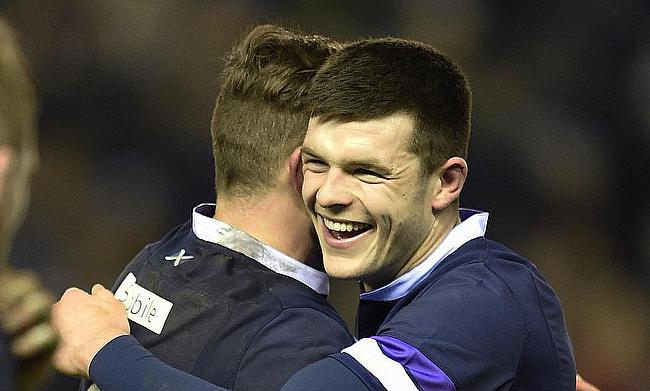
Blair Kinghorn and Scotland have set their goals high for the rest of the year
©PA
Before this year's Six Nations, Scots across the land would have jumped at the chance of a third-place finish behind the top two teams in the world.
With a World Cup group containing Ireland and South Africa also to come later in the year, picking up the 'bronze medal' from the championships would have usually been seen as a solid base to build from.
But you get the sense Gregor Townsend's side feel they could have achieved more.
"You want to be higher," said Blair Kinghorn, after helping his side eventually get past Italy in Scotland's final game of the Six Nations.
“I think the consistency of our performance has been better than other years, and if you’re not quite at the races against the number one and number two teams in the world, [Ireland and France] it’s a tough competition to break into that top two.
“We certainly had our chances against Ireland and France but I think the consistency of our performance compared to other tournaments has been much better."
Kinghorn’s comments speak volumes as to how highly this current crop of players regards themselves on the world stage. Against France in Paris, the Scots were a few plays away from downing the World Cup hosts.
There is a flip side, though. Take out Scotland’s playmakers such as Finn Russell, Richie Gray and Stuart Hogg and suddenly, a world-beating team retreats inside its shell.
They become fearful of defeat rather than looking to impose themselves physically on the teams they play. Last weekend's tense finale at Murrayfield highlighted this point.
But it is about maintaining a positive mindset: “We go into every game thinking we can win," said head coach Gregor Townsend. "We do the work in the training week to put a winning performance out there so we’re disappointed when that doesn’t happen.
“The disappointing side of the Ireland game was just the second half when the game was there to be won by either team and eventually they grabbed it and we didn’t.
“The other three games, Twickenham was brilliant, a really good team performance without that much ball, a brilliant team try at the end, brilliant team defence to win the game. Wales was when things clicked in attack and against Italy was a great finish.”
All in all, this Scotland side is oozing confidence in a way that has not been seen for a generation. When the crowd decide to, they can turn Murrayfield into a fortress, particularly when it has an explosive South African on its left wing.
Come the opening round of the World Cup when Scotland face the Springboks in Marseille, Duhan van der Merwe’s teammates will have to be in the form of their life against the country of his birth and the defending world champions.
It’s a game that is perhaps favoured over their encounter with Ireland, which is their final match of Pool B.
“If people want to look at us as underdogs, then so be it,” laughed Scotland’s winger. “I believe we can go out and challenge any team in the world. We’ve shown that this year against New Zealand [back in November], against the top teams in the world.
"There are a few bits we have to look at in terms of how we get better, but we’ll work hard at that and when the World Cup comes, we’ll be on our game.”
Despite winning the Calcutta Cup, Doddie Weir Trophy and the newly created Cuttita Cup, major silverware continues to elude Scottish Rugby.
2023 can be a defining year for Scottish rugby but for this to come to fruition, it is of paramount importance this team progresses from the group stages of the World Cup come September.
This squad has a cheeky swagger about it that has rarely been seen across Scottish team sport, let alone on the grass of Murrayfield. Scotland must now back up their talk of titles and conquests or risk wasting yet another generation of stars.


